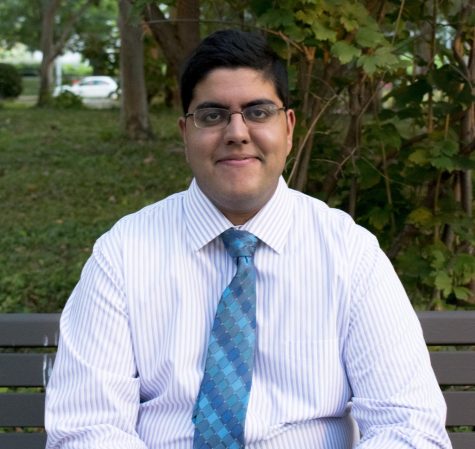Researcher lectures about Netherland’s euthanasia policy, potential US implications
Currently, doctors try to keep you alive no matter, but that may soon change.
Dr. Gerrit Kimsma, a well-known medical practitioner from the Free University of Amsterdam lectured Monday on campus about his research on the legal and institutionalized practice of euthanasia in the Netherlands, and its potential implications for the United States.
Euthanasia differs from hospice care in the fact that in euthanasia, a physician, with the patient’s approval, intentionally ends a person’s life through medical means to end suffering. Physician-assisted suicide is currently legal in four states: Oregon, Washington, Montana and Vermont. Euthanasia, however, is not legal in any state. The federal government hasn’t passed a law allowing or regulating the procedure.
In the 1970s, the Dutch medical community was divided concerning the topic and the act was carried out in a masked manner. However, as time passed, the practice became more accepted in the medical community. A decade later, in 1984, the Dutch Supreme Court ruled that euthanasia was a legal medical option. The courts and other groups such as the Royal Dutch Medical Association closely watched the system. Most recently, a 2002 law set the parameters of when euthanasia can be used. The law must be reviewed every five years.
While the results of the Dutch system are ever evolving, conclusions drawn from research on the topic may one day prove to be useful for the United States. However, some key distinctions must be taken into consideration. For example, political discussions in the United States involve defining individuals’ rights and what kind of limits are placed on them. In the Netherlands, however, an individual’s rights aren’t the emphasis when forming laws, but rather the needs of the people.
The 1984 court ruling in the Netherlands exemplified this concept. Dr. Kimsma said that the conclusion of his lecture noted, “The physician has the duty to protect life, but the physician also has the duty to relieve suffering.”
According to Kimsma, while physicians in the Netherlands attempt to balance both of these duties to stay in legal parameters, physicians in the United States are more concerned with what options the patient has and what he or she desires. That mindset may point toward the acceptance of euthanasia at first glance; however, in the United States, the involvement of a physician is seen as taking the right of life from an individual.
“Autonomy always dies with euthanasia, I just can’t see a justification,” Kimsma said.
The United States isn’t poised to nationally incorporate the practice anytime soon. At the same time, since 2010, the current system has stirred some debate in the Netherlands.
According to Dr. Kimsma, the system has been working because of its transparency, the infrequency of euthanasia procedures performed and because doctors make sure to accurately report any cases of the practice.
The system has been studied internationally, and while it seems to have been working, many new, younger persons are calling for a more extensive approach.
For example, many say that for psychiatric and Alzheimer’s patients, physicians should be lenient when deciding as to whether they fit the parameters of having the opportunity for euthanasia. Indeed, some argue that those over 70 years old should also be given a weighted consideration. Physicians or others who additionally must give approval refuse two-thirds of euthanasia cases in the Netherlands.
A new form of euthanasia seeks to reduce the role of the physician from decision-making. The Euthanasia Society in the Netherlands has been steadily increasing pressure for families to have control over euthanasia and even be able to carry it out with due process. The method that is supported is an overdose of pain controlling medication.
Over the next decade, researchers across the world will be watching to see how this affects the Netherlands and how the results could be used to decide as whether euthanasia can be systematized in other countries.

Kushagra Gupta is a cognitive science and biology student and is working towards a masters in medical physiology. He's served as The Observer’s The Director...

